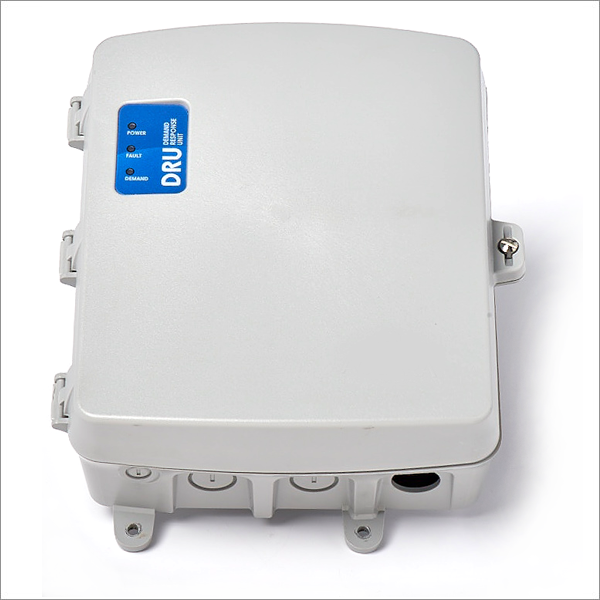Earn a bill credit when you Beat the Peak - $100 for water heaters, $50 for central air conditioners!
As a member of Sussex Rural Electric Cooperative, the energy charge on your electric bill covers the amount it cost the Cooperative to provide you with the electricity that you used in that period. But did you know that time of day can impact how much energy costs?
a member of Sussex Rural Electric Cooperative, the energy charge on your electric bill covers the amount it cost the Cooperative to provide you with the electricity that you used in that period. But did you know that time of day can impact how much energy costs?
During "peak hours," times during the day when more people are typically using electricity, energy is more costly for utilities like your Co-op to purchase and provide. Peak hours tend to vary depending on time of year, but as a general rule they align with when more people would be awake and at home, using electricity. Peak hours usually last from mid-morning to evening in the summer, and early to mid-morning then early evening to nighttime in the winter.
 Your Cooperative runs a load control program aimed at making it even easier for our members to "Beat the Peak." In exchange for incentives offered by SREC, Beat the Peak members agree to have a Demand Response Unit, or "DRU" (pictured here), installed on their central air conditioner or electric water heater. This device allows SREC to shift these appliances' energy usage from time of peak demand to times of off-peak times.
Your Cooperative runs a load control program aimed at making it even easier for our members to "Beat the Peak." In exchange for incentives offered by SREC, Beat the Peak members agree to have a Demand Response Unit, or "DRU" (pictured here), installed on their central air conditioner or electric water heater. This device allows SREC to shift these appliances' energy usage from time of peak demand to times of off-peak times.
Beat the Peak members not only get to have some of their most demanding energy needs shifted to off-peak times, but also help keep prices down for everyone across our system. When you Beat the Peak, you're helping all our members save. If you are interested in becoming a Beat the Peak member, enroll today!
BEAT THE PEAK is our long-standing Load Control program whose sole purpose is to save our members money. With the name comes new incentives. In June we started offering monetary incentives to participate in the program. If you sign up for your electric water heater we will be offering $100.00, in the form of a bill credit, along with a $2.00 bill credit per month. Signing up your central air conditioner will earn you $50.00 in the form of a bill credit, along with a $5.00 bill credit per month during summer months of June through August. More information on how load control works is available below.
Sign up for BEAT THE PEAK through the form below!
The Coordinated Load Management System, or "load control," was developed by Sussex Rural Electric Cooperative alongside the 13 Pennsyvlania rural electric cooperatives in conjunction with our wholesale power supplier Allegheny Electric Cooperative, Inc. (Allegheny). This program invites cooperative members to become partners in the effort to reduce demand and control electric rates.
Load control works by shifting electricity use of residential electric water heaters, central air conditioners, electric thermal storage (ETS) units, dual fuel home heating systems, and other special equipment in the homes of volunteer members from times of peak demand to times of lesser demand. Allegheny and its partner electric cooperatives created the Coordinated Load Management System as a way to help keep electric rates from rising.
Electricity is produced for immediate use because it cannot be stored economically. Due to this, power plants must meet electricity requirements at all times. Peak demand refers to those periods when electric consumers collectively use the most electricity. Generally, electricity prices are higher during demand peaks.
Because of electric competition in our region, electric rates are partially based on how much power your Cooperative requires between 1 and 6 pm on the five hottest, most humid days each summer. Reducing the amount of power your Cooperative uses on those days, as well as during other times throughout the year, can help control electric costs.
First, an SREC member volunteers to have a demand response unit installed on his/her electric water heater or central air conditioner. Once installed, this device becomes part of your Cooperative's overall system. While the DRU waits for instructions, local electric cooperative computers monitor electricity demand and weather data.
When demand reaches an extremely high level, SREC sends a signal over electric lines to various load control receivers. Your DRU will then temporarily switch off power to your connected device. By controlling use of electricity to these specific devices owned by Beat the Peak volunteers, your electric cooperative reduces demand across its entire service area.
Control periods are designed to be as convenient as possible for members. Appropriately-sized water heaters will have enough residual hot water to last you through the control period. Central air conditioners are cycled on and off in intervals of approximately 20 minutes - a temperature difference in your home may be noticeable during this time, so load control is a better option for members who would be out of the house during peak hours on most days during the summer.
Our monitoring systems and the load control receiver do all the work. You don't have to lift a finger!
Any full-time residential electric cooperative member with an electric water heater or central air conditioning system can participate in load management, as well as in any off-peak rate ETS programs being offered.
If you choose to enroll your electric water heater, an SREC employee may reach out to you prior to scheduling installation to verify that your water heater's size is enough to support your household's hot water needs during load control periods.
Load control costs you nothing. If you volunteer, Sussex Rural Electric Cooperative will pay for the demand response unit and its installation. We also provide members with incentive for their participation - members who register their water heater receive a $100 rebate plus $2 per month and members who register their central air conditioner receive a $50 plus $5 per month during the summer (June - August). Power cost savings resulting from the program offset any expense incurred by your Cooperative and over time help us keep rates low for all members.
Water heaters are great for our load management efforts because they provide efficient heat storage. Studies show that electric water heaters can remain without power for as long as eight hours and not inconvenience consumers. During a Beat the Peak control period, your water heater should typically be shut off for between two and four hours.
Several precautions are built into load control to ensure that you will not be inconvenienced. Firstly, water heaters are grouped according to their storage capacities and household size. Under normal conditions no group is turned off longer than required, ensuring the storage capacity and needs of the family are met. Secondly, the control system has been designed so that if any portion fails, the load control receiver on your water heater will keep electricity flowing.
Our control formula is designed to shed 50% load from controlled central air conditioners across our system. During peak hours on hot summer days, your air conditioner will be cycled on and off at intervals of approximately 20 minutes. If you choose to enroll your air conditioner in the Beat the Peak program, you will likely experience a slight increase in temperature during control periods. We find that enrolling your central air conditioner in load control works best for members who are likely to be out of the house during peak hours (from mid-morning to the evening) on most weekdays during the summer.
Load management does not necessarily lower the amount of electricity you use. Instead, it shifts when you can use it from peak demand to off-peak periods. That said, if you have a high efficiency water heater like the Marathon it is possible that it will not run after the control period is over and you will see some savings on your electric bill.
We monitor electricity demand and weather conditions 24 hours a day. However, electricity to water heaters and air conditioners will be switched off only on days when demand is expected to be extremely high. On control days, the DRU will control your appliance during the peak hours of those days. Peak hours usually last from mid-morning to evening in the summer, and early to mid-morning then early evening to nighttime in the winter.
An employee from Sussex Rural Electric Cooperative or a firm contracted by us will install the demand response unit on your appliance. These individuals, whether from the Cooperative or a contracted firm, understand how load control works and will always carry proper identification.
If for any reason you are dissatisfied with our Beat the Peak program, SREC will promptly remove you from the program at no charge. If you received an incentive to participate and have been enrolled for less than two years, we may request a portion of that incentive back.
We also reserve the right to leave the equipment in place and remove you from the software program to save on labor and travel costs, which are expenses our members would ultimately need to pay. In a case like this, the device will be inactive and will not interfere with the operation of your water heater.
Even if you don't feel that Beat the Peak is right for you, there are other ways that you can change your energy habits to help our membership Beat the Peak! Making these small changes during peak hours will help you conserve energy and will make an impact on your power bill. Below are a few examples of how to get started!
